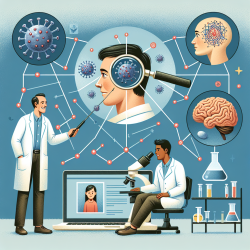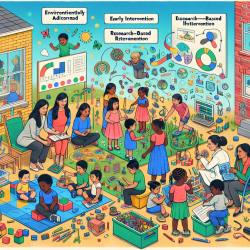Understanding the Rubella-Autism Link
As a practitioner in the field of special education or therapy, staying informed about the latest research is crucial. One such area of interest is the potential link between rubella and autism. The research article titled Does Rubella Cause Autism: A 2015 Reappraisal? provides a comprehensive review of this association, offering insights that can enhance your practice and encourage further research.
Key Findings from the Research
The study revisits the association between congenital rubella syndrome (CRS) and autism, initially observed in the 1970s by Stella Chess. Chess found a significantly higher prevalence of autism in children with CRS compared to the general population. This has led to ongoing discussions about the role of maternal infections in the development of autism.
Despite widespread vaccination efforts, rubella has not been eradicated globally, affecting up to 5% of pregnant women. The research highlights several similarities between CRS and autism, such as shared neuropathological and neuroradiological findings, including cerebral vasculitis and decreased brain perfusion in affected areas.
Implications for Practitioners
Understanding the potential link between rubella and autism can help practitioners in several ways:
- Screening and Monitoring: Be vigilant in screening pregnant women for rubella immunity and encourage vaccination where appropriate. Monitoring children born to mothers with rubella infection for early signs of autism can lead to timely interventions.
- Research and Advocacy: Encourage further research into the rubella-autism link to develop more effective prevention and intervention strategies. Advocate for comprehensive vaccination programs to reduce the incidence of rubella-related complications.
- Education and Awareness: Educate parents and caregivers about the importance of vaccination and the potential risks of rubella during pregnancy. Raising awareness can help reduce the stigma associated with autism and promote understanding.
Encouraging Further Research
The research underscores the need for ongoing studies to better understand the role of rubella in autism development. Practitioners can contribute by participating in research initiatives, collaborating with researchers, and sharing clinical observations that may provide valuable insights.
To read the original research paper, please follow this link: Does Rubella Cause Autism: A 2015 Reappraisal?










